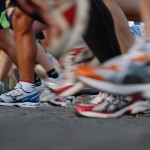Every week in The Kiddy Pool, Erin Newcomb confronts one of many issues that parents must deal with related to popular culture.
Although my child won’t be legally required to attend school for a few more years, I’m already thinking about homeschooling. I work outside the home for only about ten hours a week, and I hold a PhD in a liberal arts field; for me, that means I have the time, resources, and desire to provide an educational experience for my child focusing on character and creativity in a way that a large-group, institutional setting simply cannot. I realize that many parents don’t have this option for many reasons.
I began my research with the hunch that our nation’s teachers are significantly overburdened, a suspicion confirmed by the subjects, like hygiene and bicycle safety, required of homeschoolers in my state. Then there are, of course, the standardized tests, recently brought to the forefront once again by the exposure of a massive cheating scheme in Atlanta, Georgia. Combine the political and economic pressures to perform (or schools and teachers both risk losing money and support), and the social pressures of teaching children how to take tests and how to wash their hands, it’s no wonder the educational system often seems strained to the breaking point.
Take, for example, the film Race to Nowhere by Vicki Abeles. The documentary chronicles the schooling experience by interviewing students, parents, and teachers, and the word “overburdened” seems to apply to them all. It’s a film that exposes the pressure boiling over in so many schools and so many families. In my area, it’s common for parents to be expected to purchase disinfectant wipes and toilet paper for their children’s classrooms. In another part of the country, such issues led the ACLU to take the state of California to court; the ACLU won, and the “pay to learn” system of fees was deemed unconstitutional on the basis that public education ought to be free.
I agree with the ACLU’s ideal, but that doesn’t put toilet paper in school bathrooms. Neither would my decision to homeschool my daughter fix a system that seems broken for the most important parties involved—students, parents, and teachers. One of the biggest conflicts I face in my thought process is that my ability to “opt out” reflects my position of privilege, and does nothing for children in poverty. Across the country, there are stories of parents worried by the scholastic expectations put on children, teachers confined by government-imposed standards and strained by the desire to attend to the immediate material needs of our children. I think I can give my child a great education if I go it alone, but the problem is that parents and teachers within and outside the system all seem to feel like we’re on our own.











